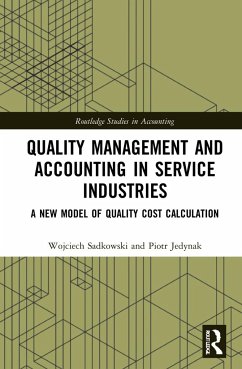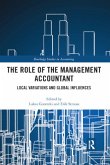The process of globalisation in world markets, and the growing number of enterprises competing with one another in terms of the products and services they offer, naturally leads to the improved efficiency of management systems. Efficiency is required in order for these entities to maintain competitiveness. To assess the efficiency of their management systems, enterprises use quality cost calculation.
This book fills the research gap concerned with the scientific study of the quality cost calculation, with regard to service companies. It offers the authors' concept of using the cost of quality calculation as a tool for assessing the efficiency of the management systems of service companies. The book consists of six chapters that present both a theoretical and an empirical part. In the theoretical part, the following issues are discussed: quality costs; the evolution of quality cost calculation; quality cost calculation models and their applications to date; and the specific way in which service companies operate. The practical part presents the authors' model of quality cost calculation along with the adopted assumptions and cost structure, as well as the research methodology and verification of the use of the developed model in a selected service company. The research gives credence to the role and importance of this tool in economic practice.
The book will be desired reading by both theoreticians and practitioners of quality management and accounting. It is also a valuable resource for master's and doctoral students wishing to broaden their knowledge of quality costs and their calculation in the fields of economics and management.
The Open Access version of this book, available at http://www.taylorfrancis.com, has been made available under a Creative Commons Attribution-Non Commercial-No Derivatives 4.0 license.
This book fills the research gap concerned with the scientific study of the quality cost calculation, with regard to service companies. It offers the authors' concept of using the cost of quality calculation as a tool for assessing the efficiency of the management systems of service companies. The book consists of six chapters that present both a theoretical and an empirical part. In the theoretical part, the following issues are discussed: quality costs; the evolution of quality cost calculation; quality cost calculation models and their applications to date; and the specific way in which service companies operate. The practical part presents the authors' model of quality cost calculation along with the adopted assumptions and cost structure, as well as the research methodology and verification of the use of the developed model in a selected service company. The research gives credence to the role and importance of this tool in economic practice.
The book will be desired reading by both theoreticians and practitioners of quality management and accounting. It is also a valuable resource for master's and doctoral students wishing to broaden their knowledge of quality costs and their calculation in the fields of economics and management.
The Open Access version of this book, available at http://www.taylorfrancis.com, has been made available under a Creative Commons Attribution-Non Commercial-No Derivatives 4.0 license.








